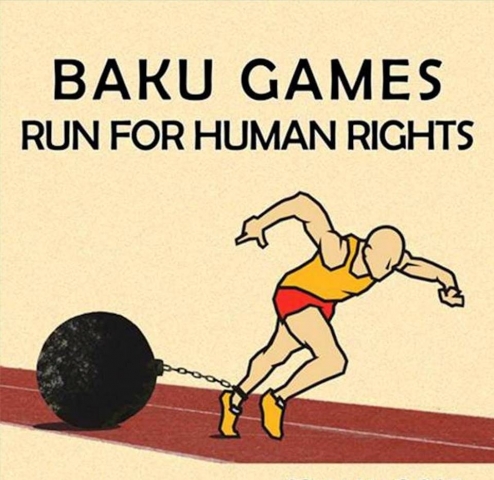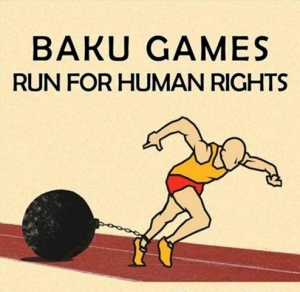Human Rights Protest to Coincide with European Games Opening
As the inaugural European Games open in the Azerbaijani capital of Baku on June 12, a Tbilisi-based human rights organization are staging a protest entitled “Sport for Human Rights” against alleged human rights breaches in the host country.
The Human Rights House Tbilisi, established in 2010, has organized an action to coincide with the opening ceremony at 730pm at Heydar Aliyev Park in Tbilisi’s old town where posters will be displayed depicting various alleged victims of human rights abuses in Azerbaijan.
Nino Gvedashvili, Coordinator of the Human Rights House Tbilisi, outlined the purpose of the protest: “With human rights advocacy and campaigning now impossible in the current climate in Azerbaijan, the Sport for Rights campaign is coordinating with human rights organizations across Europe to organize a series of protest actions on June 12 to coincide with the opening ceremony of the European Games.”
She added that protestors will call for an end to what they perceive as an ongoing human rights crackdown in Azerbaijan and will demand “the release of the country’s jailed journalists and human rights defenders.”
Similar actions will be taking place across Europe in several cities including Barcelona, Berlin, London and Warsaw.
When asked if she thought athletes should have boycotted the Games, Gvedashvili stated that she did not demand such action. Instead, Gvedashvili claimed this was “a good platform to remind the Azerbaijani government to respect human rights and release detained human rights defenders.”
The Human Rights House is a member of the Human Rights House Network, which consists of more than 70 organizations in 15 countries.
The European Games will run until June 28 with over 6,000 athletes competing from 50 nations including Georgia and Armenia.
The UK’s Guardian newspaper has been barred from entering the country to cover the games while Human Rights Watch has labelled the situation in Azerbaijan as “the worst crackdown the country has seen in the post-Soviet era.”
By Alastair Watt












